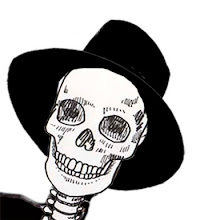The Green House is where I lived after the Haight-Ashbury experience in the
60’s. Me and my friends. And it’s where most of them died after
the Haight. It’s where I had some
of the best days of my life, and some of the worst. It’s where I first found family outside of my birth
family. It’s where I initially
found independence.
And escape from an authoritarian rule.
And escape from an authoritarian rule.
Jim, and Jon. They were my best
friends. There were several of
us. We were all close. But Jim, and Jon, and I were
inseparable. We used to surf
together, making the hour-long trek to San Clemente well before sunrise. Sitting on our boards on the water,
hours of ocean time and talking.
Riding waves and trying to describe the sensations, of the surf, and of
the LSD rippling through our compliant minds. It was all mixed together during those times. It was all a blur of induced
consciousness, natural phenomena and laughter. It was all smiles and good feelings, hallucinations and
exaggerated sensations. Limitless
expression. Sometimes
silence. Total immersion in the
flow. Unqualified co-operation
with the experience.
We surfed Trestles on
the Camp Pendleton Marine Base, and Cottons Point out front of Nixon's Western White
House. The Riviera and T Street a little farther north. The Secret Service used to patrol the
beach at Cottons. We weren’t supposed to surf there, but
the break was pretty far out, and they were not about to come out after
us. This was in the days before
leashes. If you lost your board at
Trestles or Cottons
Point you had a long
swim into shore. Not always the
ideal situation, especially in big surf.
And especially when peaking on acid. But we were not to be dissuaded in our pursuit of the
ultimate wave, the endless ride, the perpetual thrill. At Trestles the marines would wait on shore in their
jeep, and when a board would wash in they’d throw it in the back and drive it
about a half mile down the beach, leave it there and have a good laugh while we
made the long walk after the long swim in. It was like something out of a movie. In our altered state of consciousness
it usually felt like an episode of the Twilight Zone, rather than an actual event. But for us it was really all part of
the reality carnival that was our lives at the time.
At the Green
House we had an enormous living room
upstairs, surrounded by several bedrooms and a kitchen. The living room looked out onto a busy
boulevard. It was noisy, but
provided a lot of cheap entertainment.
I was in a Life is a movie
phase. Everything reminded me of a
script. Relationships,
experiences, feelings, everything.
It got to the point that I really began to believe it. We had sofas lining the walls around
the room, and one afternoon when everybody was gone I lined up all the couches
in front of the window, facing out like theater seating facing a big
screen. I made some popcorn, took
a seat in the front row and spent the rest of the afternoon watching, what I
believed was, a movie. Throughout
the day, as friends began to wander in, they quietly took a seat on one of the
sofas and stared out the window along with me. No one ever really commented on the arrangement. Everybody knew I’d been dancing
somewhat out of sync for awhile.
The room was left that way for a few weeks. Then it mysteriously returned to its original
configuration. Nothing was ever
said.
In the meantime, I had gradually returned to an acceptable level of
insanity. Life was not as
interesting after that, but it was certainly more manageable.
The Police kept a pretty close eye on the Green House. Always had someone parked outside,
under cover, and often not so under cover. They’d actually gather outside at night, late at night,
parked in their cars in kind of a show of force. We always referred to it
as a show of farce. We were like the local donut shop. Cops on duty, and even on their breaks,
used to stop by to check in with each other, but while there, they would
usually do their best to intimidate and antagonize us. They would shine their spotlights in
our windows, and talk to us through their bullhorns. Always talking crap, always talking tough, but always with a
sarcastic slant. They seemed to
like us in an odd sort of way.
Seemed to envy our freedom, even though they called us queers because of our long hair.
We’d get tired of being kept awake all night, and placed quite a few calls of complaint to the station. Obviously to no avail. I can only guess it probably just fueled their resolve. The spectacle of all those cops parked outside our house, day in and day out, left me really with only one prevailing conclusion. . . . . . . . . We must have put a lot of the local donut shops out of business.
We’d get tired of being kept awake all night, and placed quite a few calls of complaint to the station. Obviously to no avail. I can only guess it probably just fueled their resolve. The spectacle of all those cops parked outside our house, day in and day out, left me really with only one prevailing conclusion. . . . . . . . . We must have put a lot of the local donut shops out of business.
The cops
didn’t know what they were doing back then. And neither did we.
This was all new to everybody.
Life worked
itself out for me eventually, but I’m sad to say that was not the case for my
friends, Jim, and Jon, who died before their time. And I miss them.
Terribly.

